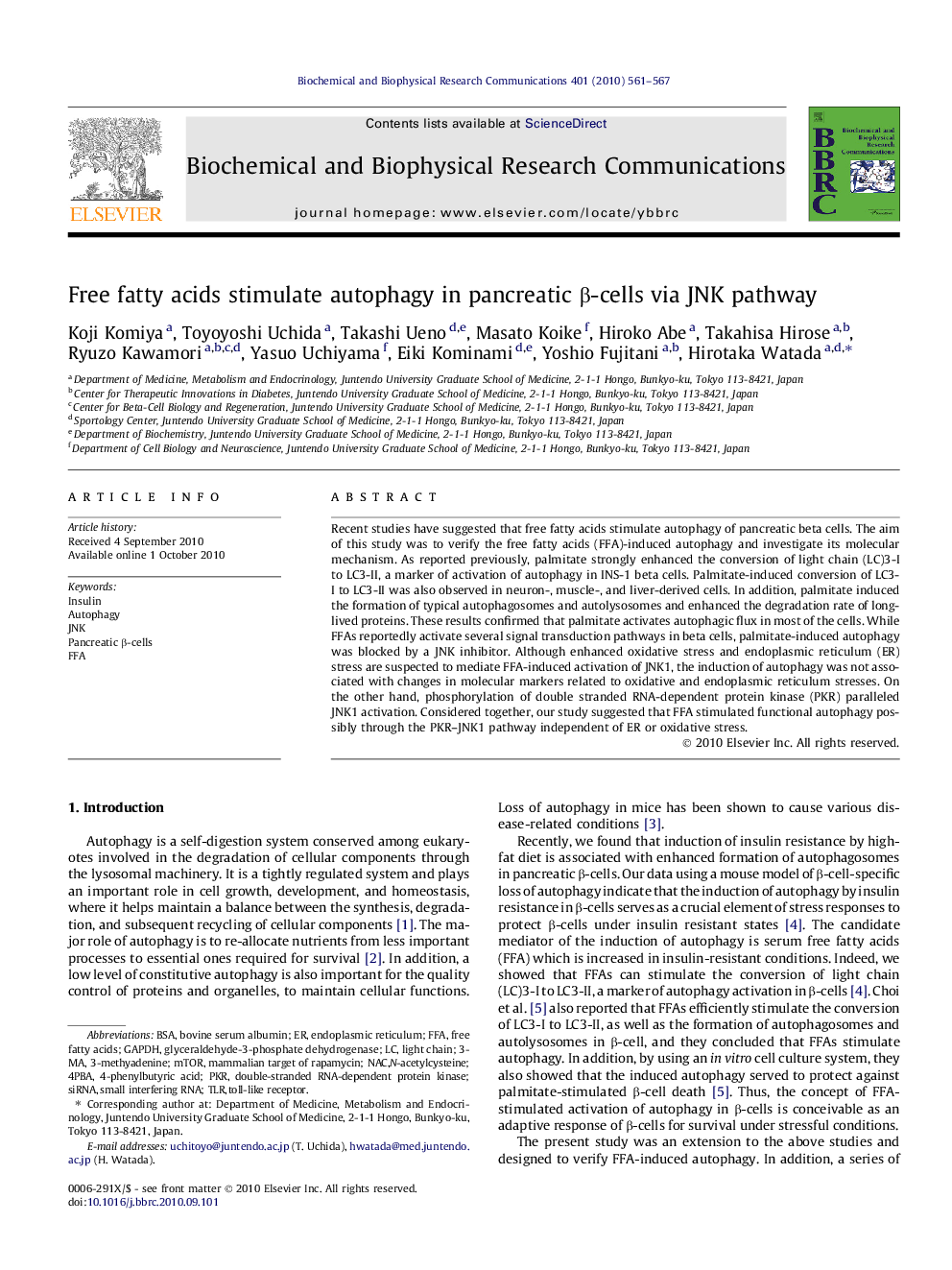| Article ID | Journal | Published Year | Pages | File Type |
|---|---|---|---|---|
| 1931204 | Biochemical and Biophysical Research Communications | 2010 | 7 Pages |
Recent studies have suggested that free fatty acids stimulate autophagy of pancreatic beta cells. The aim of this study was to verify the free fatty acids (FFA)-induced autophagy and investigate its molecular mechanism. As reported previously, palmitate strongly enhanced the conversion of light chain (LC)3-I to LC3-II, a marker of activation of autophagy in INS-1 beta cells. Palmitate-induced conversion of LC3-I to LC3-II was also observed in neuron-, muscle-, and liver-derived cells. In addition, palmitate induced the formation of typical autophagosomes and autolysosomes and enhanced the degradation rate of long-lived proteins. These results confirmed that palmitate activates autophagic flux in most of the cells. While FFAs reportedly activate several signal transduction pathways in beta cells, palmitate-induced autophagy was blocked by a JNK inhibitor. Although enhanced oxidative stress and endoplasmic reticulum (ER) stress are suspected to mediate FFA-induced activation of JNK1, the induction of autophagy was not associated with changes in molecular markers related to oxidative and endoplasmic reticulum stresses. On the other hand, phosphorylation of double stranded RNA-dependent protein kinase (PKR) paralleled JNK1 activation. Considered together, our study suggested that FFA stimulated functional autophagy possibly through the PKR–JNK1 pathway independent of ER or oxidative stress.
Research highlights► Palmitate enhanced the conversion of LC3-I to LC3-II in INS-1 beta cells. ► Palmitate enhanced the degradation rate of long-lived proteins. ► Palmitate-induced autophagy was blocked by a JNK inhibitor. ► Phosphorylation of PKR paralleled JNK1 activation. ► FFA may stimulate functional autophagy through the PKR–JNK1 pathway.
